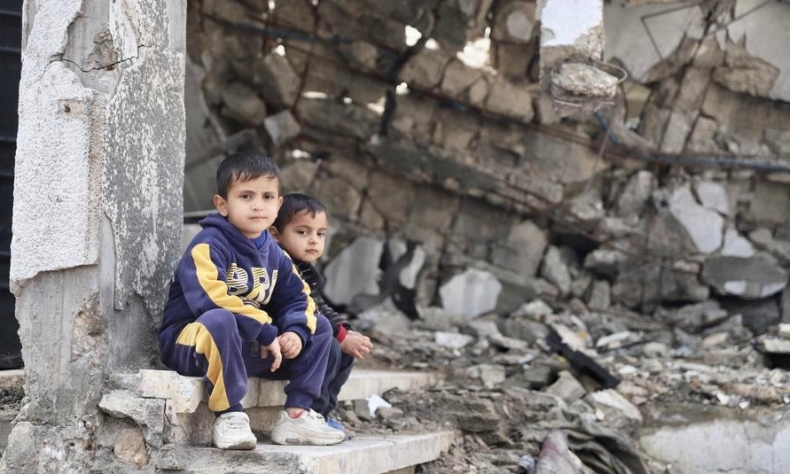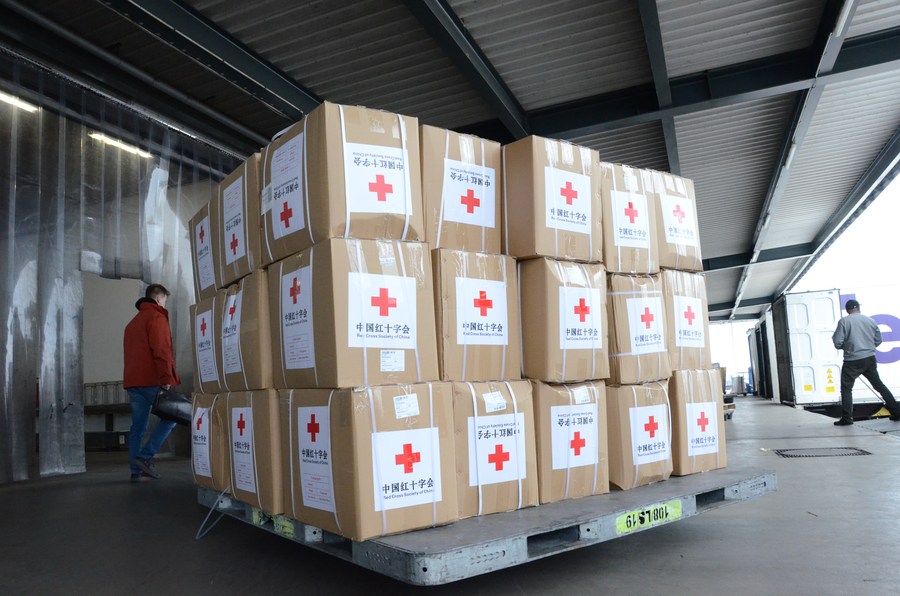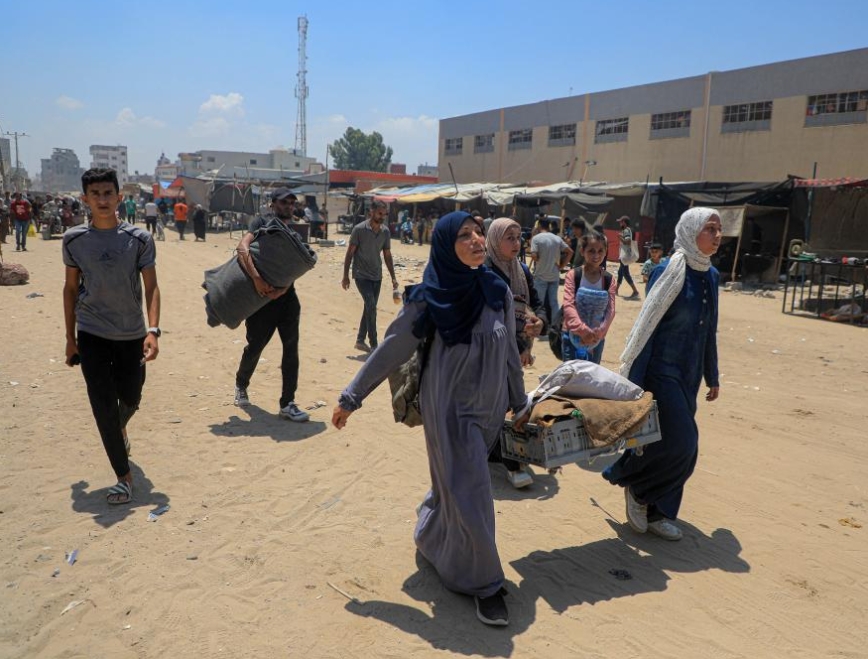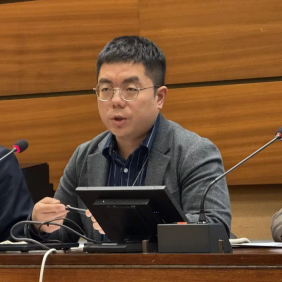The Geneva Conventions Turn 75: An Ongoing Cause

At a time when humankind is still facing the threat of war, we need to go back to the Conventions and reacquaint ourselves with the cruelty of war to ensure that the spirit of the Conventions is immortalized.
This year marks the 75th anniversary of the Geneva Conventions which consist of four international treaties and three additional protocols. The Conventions provide special protection for civilians, as well as prisoners of war, and establish the basic principles of wartime humanitarianism and international legal standards, which are generally recognized as the cornerstone of international humanitarian law (IHL).
History and development of the Geneva Conventions
The birth of the Geneva Conventions was inextricably linked to war. In 1859, Henry Dunant, a Swiss businessman, visited northern Italy after the Battle of Solferino. He was shocked by the lack of medical care and the mistreatment of soldiers. Later, Dunant proposed a permanent relief agency and a government treaty for humanitarian aid during wartime. Dunant’s proposal was soon echoed by a group of people, leading to the establishment of the Red Cross in Geneva in 1863. A year later, the first Geneva Convention was signed by 12 states and kingdoms in the same place.
After World War II, the war crimes committed by Germany, Japan and other countries provoked outrage across the world, but at the same time, it also made people understand the preciousness of peace, and the wave of pacifist began to rise. Based on this, the Geneva Conventions were adopted in 1949, and have had a profound impact on the protection of people who can no longer fight and those who do not take part in the fighting. As times changed, the content of the Conventions began to fall short of meeting the need of humanitarian protection in wartime. Therefore, two protocols were adopted and opened for accession in 1977, and in 2005 a protocol adding an additional distinctive emblem was adopted.

China’s ratification and its commitments
On July 13, 1952, the People’s Republic of China (PRC) issued a statement recognizing the Geneva Conventions and acceded to the Geneva Conventions in 1956. Since its accession to the Convention, China has actively fulfilled its obligations.
At the domestic level, China has made efforts mainly through legislation, standardization of military-related systems, and teaching, dissemination and research of the Conventions and IHL.
In terms of legislation, the National Defense Law of the PRC requires the country to observe relevant international treaties in its military relations with foreign countries. The Criminal Law of the PRC provides for the crime of breach of duty by military personnel, penalizing crimes such as mistreatment of prisoners and maiming of innocent civilians, which are prohibited by the Geneva Conventions. The Red Cross Society Law of the PRC stipulates that the Red Cross Society of China should promote the Geneva Conventions and their Additional Protocols; and conduct its work in accordance with the relevant provisions of the Geneva Conventions and their Additional Protocols.
With regard to the standardization of military-related systems, the Chinese People’s Liberation Army has emphasized the protection of the interests of civilians and the prohibition of mistreatment of prisoners since its establishment. Since the founding of the PRC, China has long maintained peace with neighboring countries. Even in a few armed conflicts over the past 75 years, China had strictly limited its operation to self-defense and always abided by the requirements of the Conventions and fulfilled its obligations with regard to the treatment of prisoners of war and the protection of civilians.
In 2007, China established the National Committee on IHL, which aims to promote the dissemination and implementation of IHL in China. The Red Cross Society of China and the International Committee of the Red Cross (ICRC) have strengthened their cooperation to promote knowledge of IHL to the public through online platforms and new media technologies. The world’s first International Academy of Red Cross was established at Soochow University. Since 2007, the Red Cross IHL Moot Court Competition (China Round) has been organized regularly. To celebrate the 70th and 75th anniversaries of the Geneva Conventions, China along with the ICRC organized academic forums to revisit the spirit of the Conventions.
At the international level, China abides by its conventional obligations through its participation in international rule-making and United Nations peacekeeping operations.
China has played a constructive role in proposing international laws and regulations, actively participating in the UN Group of Governmental Experts on Developments in the Field of Information and Telecommunications, the Group of Governmental Experts on Lethal Autonomous Weapons Systems within the framework of the Convention on Certain Conventional Weapons (CCW), and the UN intergovernmental working group on regulatory framework of activities of private military and security companies.
Besides, over the past three decades, China has sent over 50,000 peacekeepers to participate in United Nation peacekeeping operations (UNPKOs) in more than 20 countries and regions The justice of peacekeeping operations is demonstrated through the protection of civilians, especially the safety of vulnerable groups such as women, children, refugees and displaced persons.

Vital role of the Conventions in a changing world
The theme of the former ICRC President’s 2019 speech, “Changing World, Unchanged Protection,” remains as relevant today as ever. At present, armed conflicts and regional wars still exist in some countries and regions. Especially in recent years, with the unprecedented changes unseen in a hundred years, global conflicts have occurred frequently, leading to the loss of civilians, attacks on civilian infrastructure, the forced displacement of millions, and a worsening global humanitarian crisis.
At this moment, on the 75th anniversary of the Geneva Conventions, one wonders why the Conventions have not been able to stem the tide of deterioration in the global humanitarian situation. Are the Conventions outdated? What should be done to safeguard the rights of the civilians and prisoners of war?
First and foremost is the call for nations to respect IHL. The Geneva Conventions are one of the conventions with the highest number of accessions. High Contracting Parties, upon acceding to the Convention, should effectively implement their obligations to protect the rights and interests of civilians and prisoners of war.
Secondly, the implementation of the Geneva Conventions should be strengthened. Under the Geneva Conventions, the High Contracting Parties are obliged to search for the alleged perpetrators of grave breaches of the Conventions, and are obliged to bring them to trial before the court, regardless of their nationality. However, those who do not comply with IHL and international human rights law are often not held accountable, rendering the Conventions a dead letter.
Lastly, the spirit of the Convention should be revisited, and the importance of peace should be emphasized. Over one and half century ago, Dunant witnessed the horrors of the war, and came up with the idea of setting up an agency and signing an international treaty to safeguard the rights of soldiers in wartime; and 75 years ago, the brutal realities of war led to the Geneva Conventions, which have become one of the most contracted conventions. At a time when humankind is still facing the threat of war, we need to go back to the Conventions and reacquaint ourselves with the cruelty of war to ensure that the spirit of the Conventions is immortalized.
The article reflects the author’s opinions, and not necessarily the views of China Focus.
 Facebook
Facebook
 Twitter
Twitter
 Linkedin
Linkedin
 Google +
Google +



